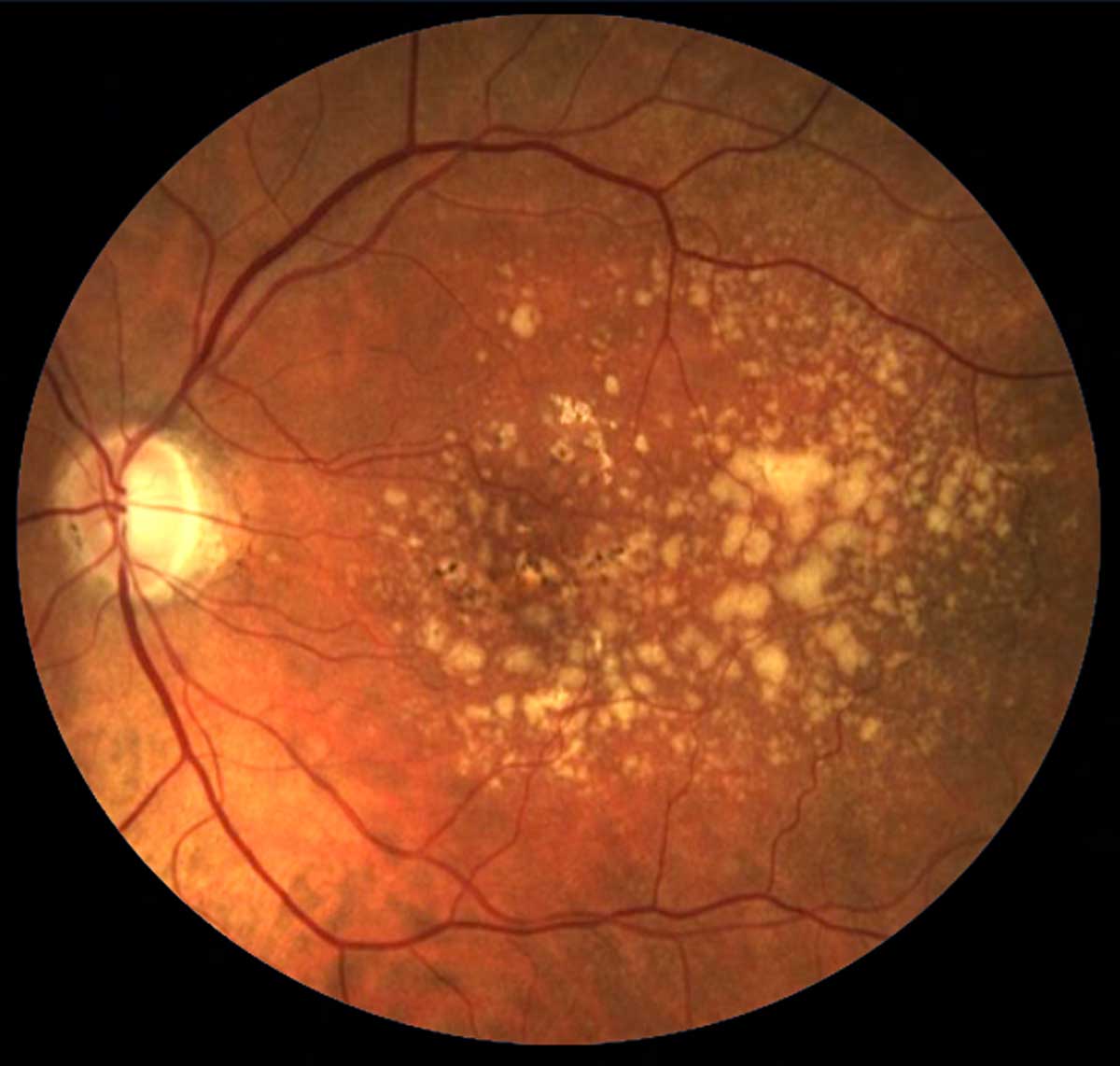 |
| This study found more evidence suggesting that thyroid function plays a role in AMD. Photo: NEI. Click image to enlarge. |
Studies have previously shown a correlation between thyroid hormones and age-related macular degeneration (AMD) in animal models. While researchers have looked into whether this association is present in humans, results have been inconsistent, though one recently published study was able to provide supporting evidence. The data revealed that higher levels of serum-free thyroxine were associated with higher AMD risk.
The two-sample Mendelian randomization study included data of 33,526 individuals from a genome-wide association study (16,144 who had AMD and 17,832 healthy controls). The study group looked at single nucleotide polymorphisms associated with free thyroxine and thyroid stimulating hormone.
They determined based on the data that “an increase of one standard deviation in genetically predicted free thyroxine levels was found to be significantly associated with an 18.9% increase in the overall AMD risk.” This causal effect remained even after conducting a multivariable Mendelian randomization analysis controlling for thyroid stimulating hormone.
The researchers also noted that “a one standard deviation increase in thyroid stimulating hormone levels was nominally associated with a 10% decrease in the overall AMD risk.” However, no causal relationship was detected once the data was adjusted for free thyroxine levels using the same method of analysis.
In conclusion, the researchers observed through this study that “higher levels of genetically predicted higher normal range free thyroxine levels were associated with higher AMD risk, and there is no clear evidence for an independent causal effect of thyroid stimulating hormone on the risk of AMD.”
Li X, Li H, Cheng J, et al. Causal associations of thyroid function and age-related macular degeneration: a two-sample Mendelian randomization study. Am J Ophthalmol. January 31, 2022. [Epub ahead of print]. |

